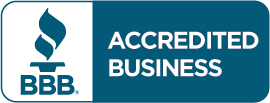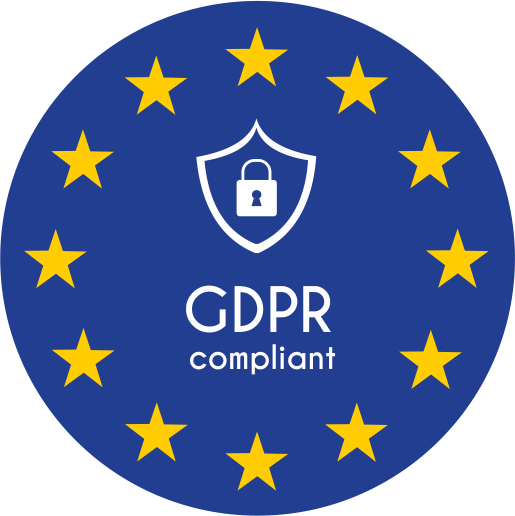by Charles Oropallo | Mar 13, 2019 | Do-It-Yourself, Domains, Internet, Monadnock Shopper News, Security, SEO, Shopper News, The CW Corner, Website Development, Website Updates, WordPress
Domain ownership is like home ownership. Domain fees are like home taxes. Stop paying taxes and see who really owns your home!
Domains are sold through hundreds of “domain registrars” around the world. It costs in excess of $50,000 to become a registrar. Registrars answer to ICANN (Internet Corporation for Assigned Names and Numbers). It maintains a database of all domains to ensure domains can’t be duplicated.
Most domains are registered by web development companies. Accepted common practice is to obtain domains for their client, set it up and build a website accessible with it.
Losing a domain can easily be avoided. Common reasons I have seen for folks to lose their domain names are as follows, in the most common order:
1. Renewals ending up in spam buckets or returned with dead/outdated email addresses.
2. Church parishioners/employees who have a falling out.
3. Business employees who move on regardless of circumstances.
Avoid Gmail, Yahoo or other “freebie emails” with your domain. You’ve ZERO control over and can’t even call them.
Seek out reputable web developers OUTSIDE your organization to handle your domain names. Avoid “one man shows” and startup developers. Use BBB accredited businesses who’ve been at it at least 10-20 years. They’ll likely look out for you and protect your domains.










by Charles Oropallo | Jan 30, 2019 | Do-It-Yourself, Domains, Internet, Monadnock Shopper News, SEO, Shopper News, The CW Corner, Website Development
Domain names are the least expensive part – yet the most important – of one’s Internet presence! Here are some tips on choosing them.
Initial Search – Be careful how you search! Unscrupulous companies buy domains people search for to sell at much inflated prices (often $100+ for $15 domains). CharlesWorks at http://CharlesWorks.domains does NOT do this practice. Or just ask us.
Association – Use the name of your business as all or part of your domain.
General Names – More general domain names are most likely already registered to other businesses (it never hurts to check with us first).
TLDs – Top Level Domains are the “extensions” like .com, .net, .org, .club, etc. Search engines today don’t care what they are.
Hyphenated Names – We recommend avoiding hyphens to lessen confusion, unless you absolutely can’t get your words another way.
Variations – Can be an option if your general business name is already registered, like adding “NH” before or after it.
Keywords – Pertinent words in your domain are increasingly important. Simplistically put, search engine algorithms rank the importance of web sites according to words.
Cost – Domains vary according to TLD, Many common ones are still only about $15-$20 annually.
Most importantly, we ensure domains we sell are renewed annually so you will not lose them!










by Charles Oropallo | Oct 31, 2018 | Domains, Internet, Monadnock Shopper News, Security, SEO, Shopper News, The CW Corner, Website Development
Here’s another scam designed to get you to share your credit card information: the Internet Domain Listing Service. It’s been around many years.
The Domain Listing Service usually involves an invoice you receive either via email or in postal mail. It’s deceptively designed to look like a bill you owe regarding your domain name. There is generally a sense of urgency expressed in it. The invoice coincidentally arrives roughly about the time your domain is due for annual renewal. That’s key to folks falling for it.
What the “service” purportedly offers is listing your domain in places on the web to get your website found – for several hundred dollars or more. We have found little or no evidence of any tangible results for most of these. We’ve actually seen web sites banned in search engines as a result of some “listing” services.
There ARE valid directories on the web that help sites increase search engine ranking. At CharlesWorks we provide this for no additional ongoing inclusion fees.
Carefully read the text in these offerings! It usually reveals that they are just a solicitation and not a required service.










by Charles Oropallo | Oct 24, 2018 | Domains, Internet, Monadnock Shopper News, Security, Shopper News, The CW Corner
There are so many scams out there on the Internet it’s impossible to keep up with them or list them here. Here’s a common one we see nearly every day to possibly hijack your domain name. Your domain name is the unique identifier that gets web visitors to your website – you don’t want to lose it.
Many people receive mail about renewing their domain name. These offerings are designed to look like you owe money to renew domains. In some scams, when you respond to these you may lose your domain. They’re sophisticated and have been around a long time. Reading the text closely usually reveals that they are in fact a solicitation to move your domain elsewhere.
Domain names are usually handled one of two ways. One is through the company you do business with to handle your web needs. They keep the domain locked in a master account of theirs and through that they ensure that the domain name is kept renewed and bill you for that. The other way is for the individual to manage their domain themselves. That method leaves open the possibility of not receiving an email and therefore losing the domain as it expires. Domain expiration allows anyone else to purchase that domain name.










by Charles Oropallo | Oct 3, 2018 | Do-It-Yourself, Domains, Email, Internet, Introduction, Monadnock Shopper News, Passwords, Security, SEO, Shopper News, The CW Corner, Website Development, Website Updates, WordPress
 Charles Oropallo, CharlesWorks founder and owner, Peterborough NH
Charles Oropallo, CharlesWorks founder and owner, Peterborough NHWelcome to The CW Corner!
Charles Oropallo from CharlesWorks in Peterborough, NH will be bringing you articles on popular web topics with helpful hints. Most are expected to be simple and some are for the more experienced. All should be useful and educational by many readers. We will address:
-
- Passwords with our focus on making them secure – yet easy to remember.
- Common Internet scam information about domain name renewals to perhaps save you a lot of grief going forward.
- More Internet scam information about Directory Listing scams to again save you a lot of grief.
- SEO (Search Engine Optimization) in layman’s language and how it works.
- Current web design products like WordPress – a free content management system for building websites.
- Some information about spam and how you get onto those spammer’s lists.
- Common myths and misconceptions about domain names aimed at helping you protect your online brand.
- The ease (or not) of website self-maintenance for do-it-yourselfers.
- The importance of shopping local and supporting your own community.
- Things to know about email security on your phone or on your computer or on your tablet.
- Website hosting and the advantages to local servers vs cloud storage.
- The occasional pitfalls of having your friends help you with your web needs.
- Reviewing your website now and then.
- A little about email etiquette and things to avoid.
- A common email extortion to ignore.
- Secure Socket layers (SSL) and the surrounding hype.
- Some tips and thoughts about choosing domain names.
- Free counters and issues surrounding most “free” web stuff.
- Info about a common “you need to update your email” scam.
- A brief explanation of “the cloud” as applied to the Internet.
- Social media – Facebook in particular – and how it relates to your web presence.
- How long you have to get site visitor’s attention.
- Who owns your domain and info about domain ownership.
- Checking up on your web content and the minimum needed.
- Checklist to help you find the best web developer.
And more! We’ll try to keep this page updated over time with the topics we cover each week!
There is a lot to share!
Feel free to email Charles with questions/suggestions. Check out The CW Corner each week here to see our new articles!
Charles Oropallo (Charles@CharlesWorks.com) started CharlesWorks in Peterborough NH in 1998. His team has provided website design, hosting and related web services for thousands of web clients on four continents.














 European Union General Data Protection Regulation Compliant
European Union General Data Protection Regulation Compliant